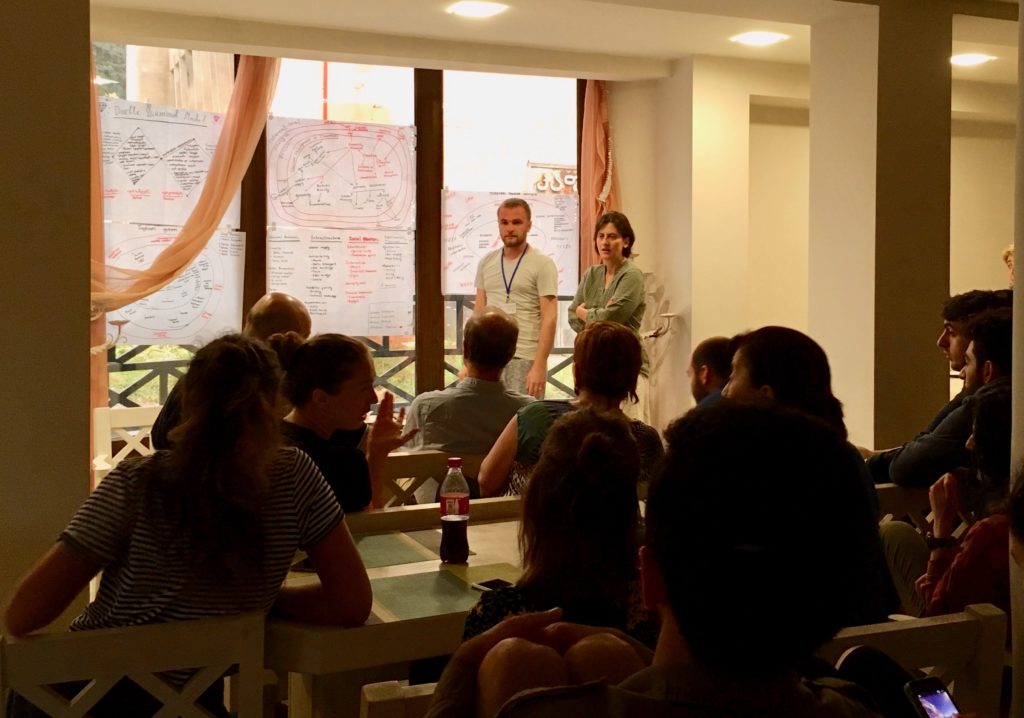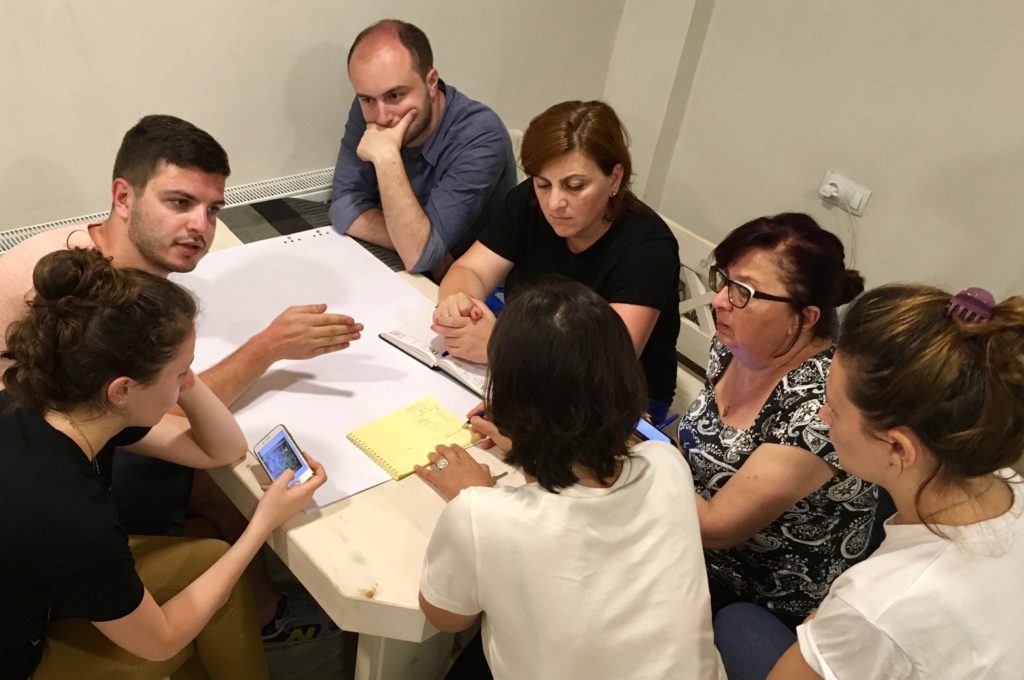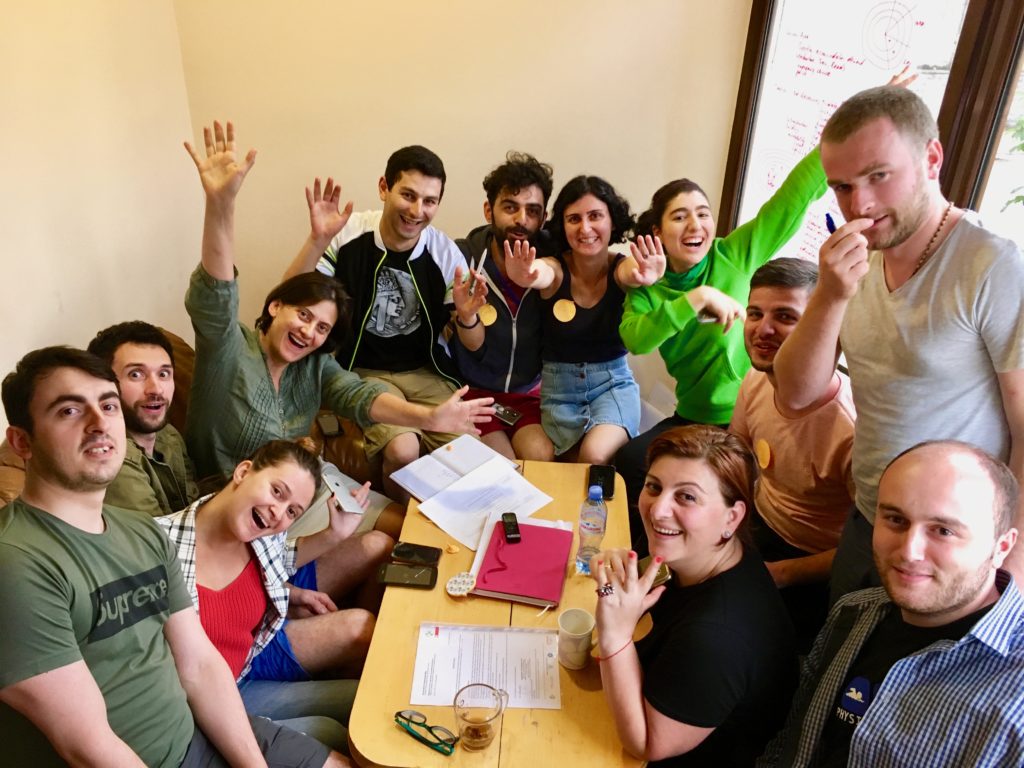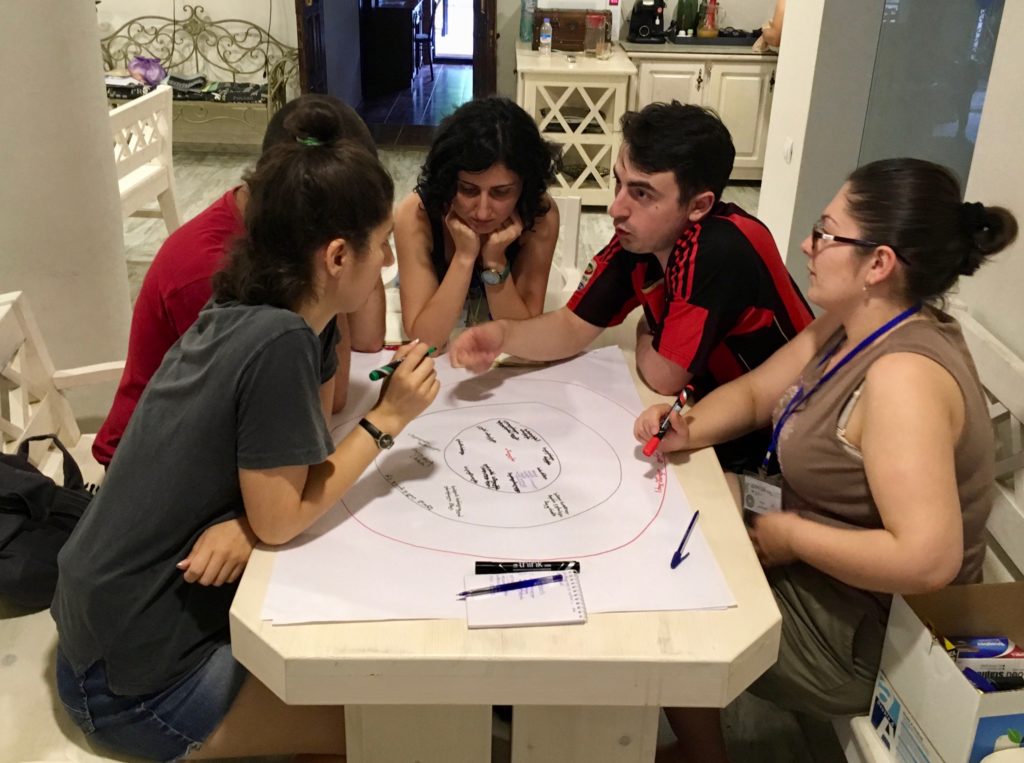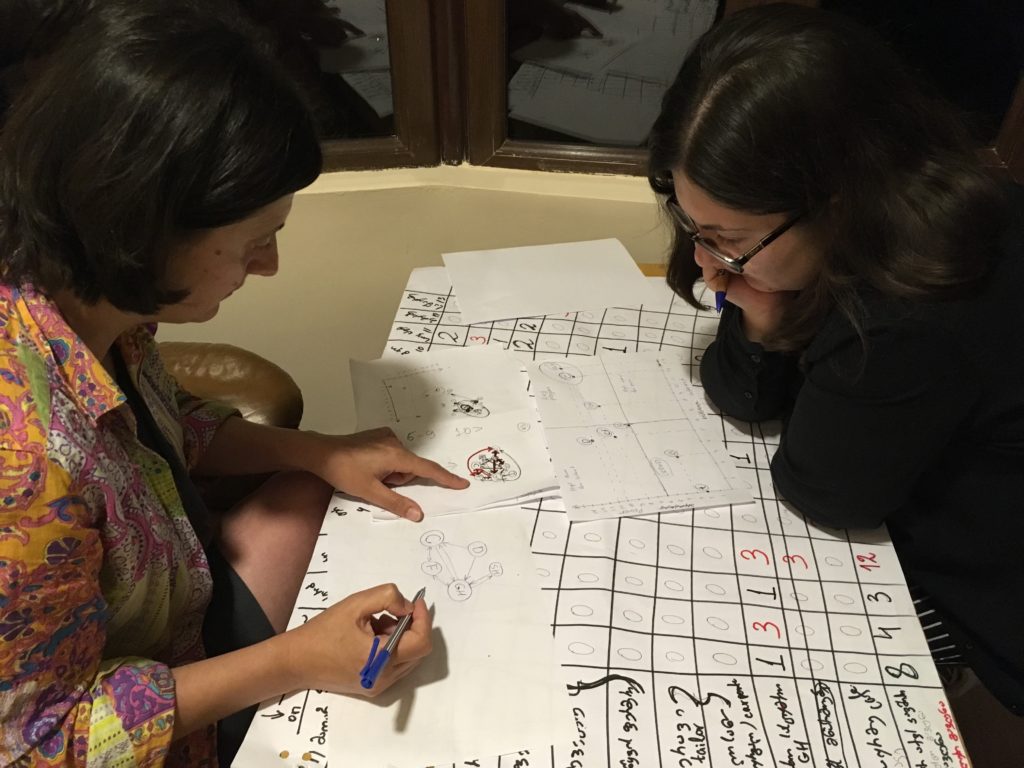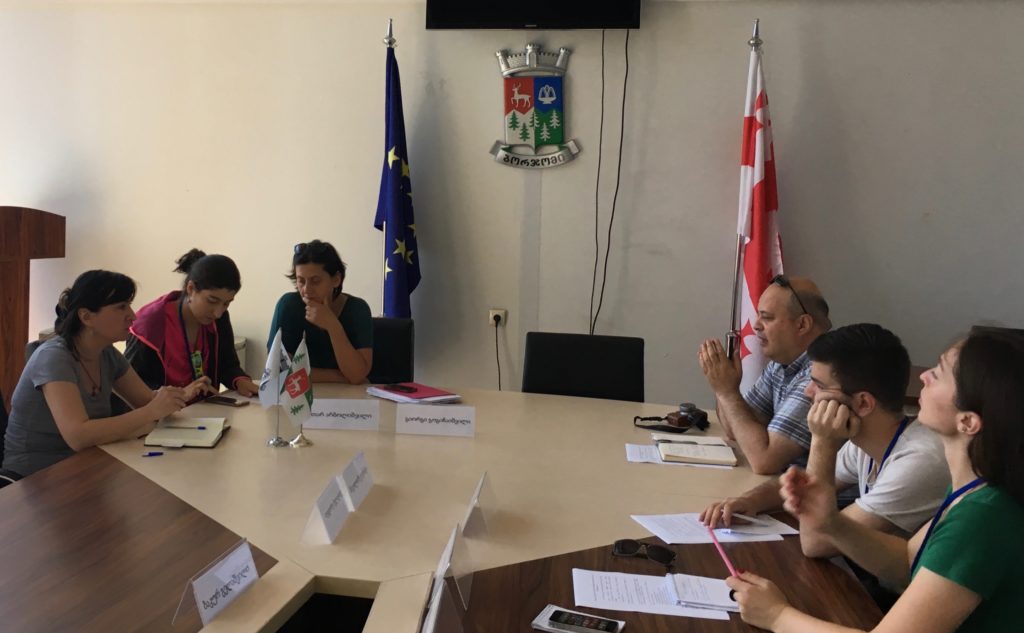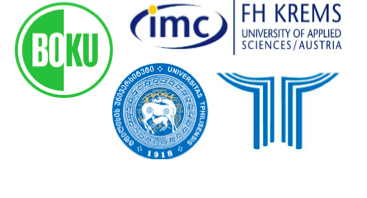TD Case Study Course in Racha, Georgia, August 2020
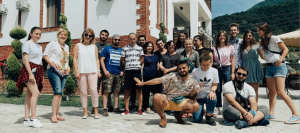
An additional Case Study Course took place in Racha, Georgia, in August 2020. The student report will be available here soon.
The Pilot Case Study Courses have been successfully completed in Armenia and Georgia in the summer 2018 and 2019 ! Read more information and see pictures below:
TD Field Case Study Course in Dilijan, Armenia, 20-30 June, 2019
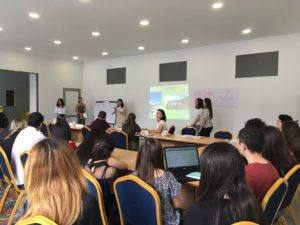
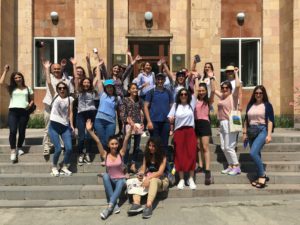
The student report of the TD Case Study Course can be downloaded here.
The TD Case Study Course in Stepantsminda, Kazbegi, Georgia
The course was held in cooperation with a BOKU Excursion course!
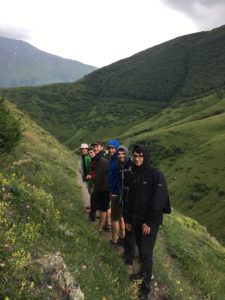
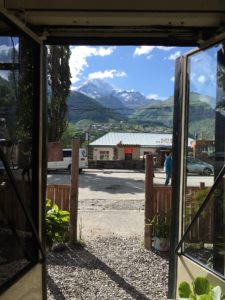
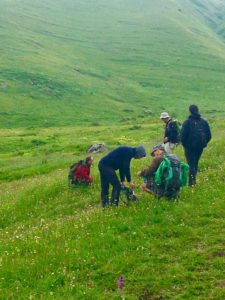
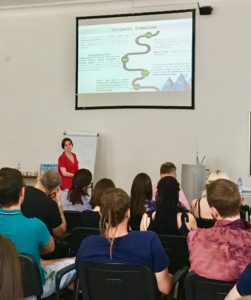
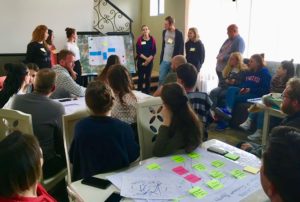
The student report of the TD Case Study Course can be downloaded here.
______________________________________________
Case Study in Meghradsor community, Armenia, 20-30 June, 2018
24 students from the faculties of physical geography, social-economic geography and landscape planning took place in the case study, together with an interdisciplinary team of teachers of Geography, Biology, History, Sociology, Ecology and Sustainable Development. Partners from Austria (BOKU and IMC Krems) and Georgia (TSU) also participated. The students and teachers in groups worked in cooperation with the local stakeholders to tackle several research questions focused on sustainable tourism development of the Meghradsor community. The students came up with a number of scenarios and proposals for potential tourism products. Their aim is to continue supporting and promoting the Meghradsor community in the future.
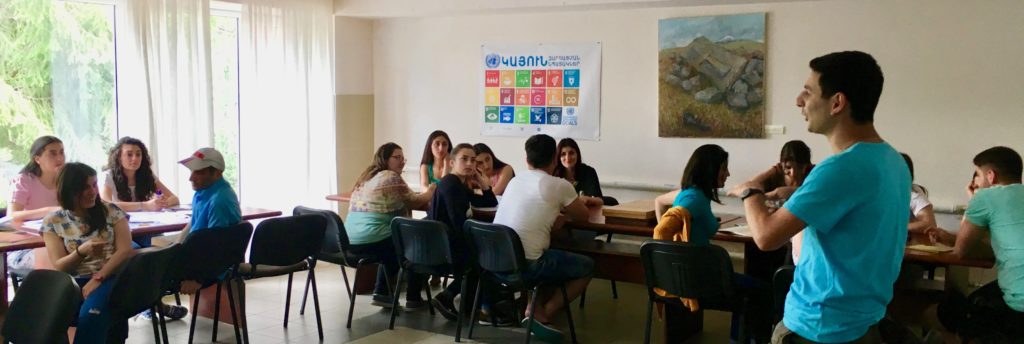
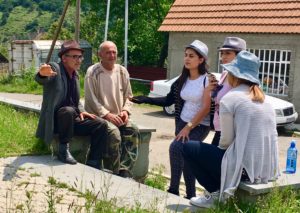
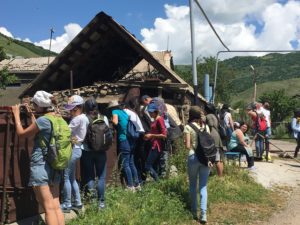

The daily journal of the Case Sudy can be downloaded here: Case Study Course Armenia Journal
The summary presentation of the students’ work can be seen here: Summary Presentation
A video of the case study has been produced by the ASPU Media team.
More information in Armenian and pictures can be found on the Case Study Facebook page
Preparatory Work for the Case Study in Armenia, which began right after the teacher workshops in the Summer of 2017, included a number of meetings and teacher trainings, as well as swork with the local stakeholders.
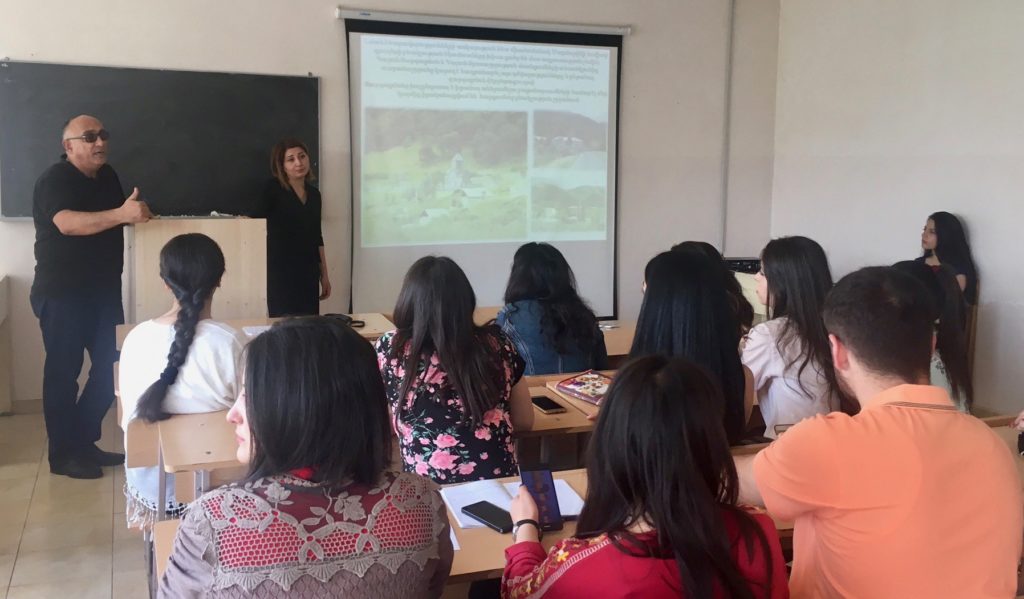
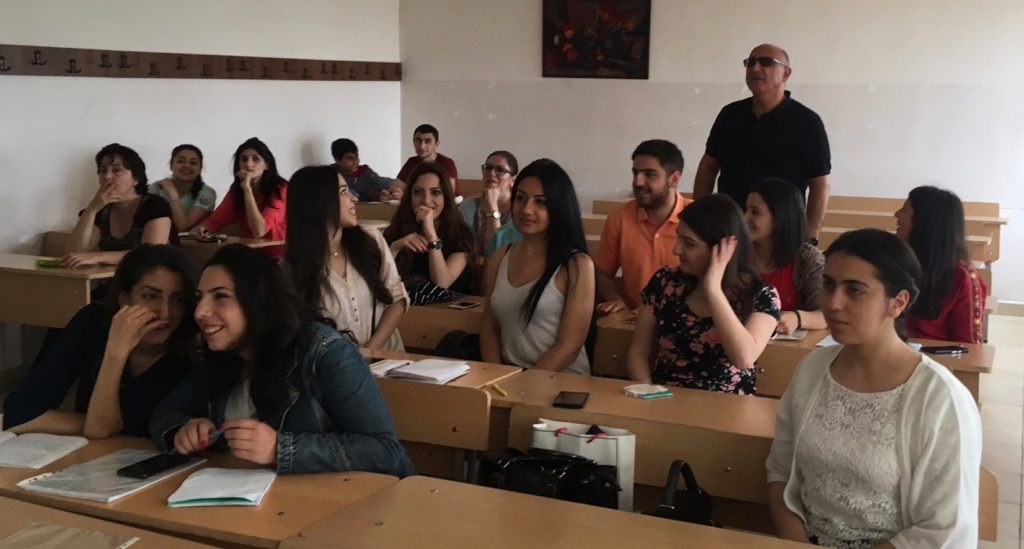
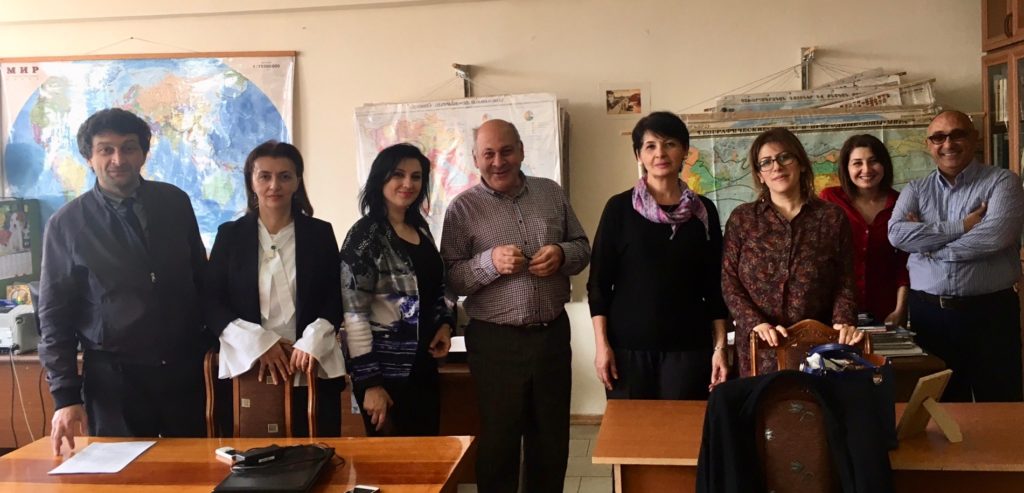
*
Case Study in Tsagveri community, Georgia, 9-23 July, 2018
The transdisciplinary case study course took place in Georgia from 9 to 23 July, 2018, with the field component , carried out in Tsaghveri community (Borjomi municipality), from July 11-21. 17 students and 5 professors have participated in the Case-study, coming from various master’s programs and from three faculties of Tbilisi State University (TSU): Human Geography program of the Faculty of Social and Political Sciences,
Tourism and Hospitality program of the faculty of Economics and Business, and Regional Geography and Landscape Planning program of the Faculty of Exact and Natural Sciences. Colleagues from Austrian universities, BOKU and IMC Krems also took part in the course. Throughout the Case Study Course students worked closely with local stakeholders representing public, civil and private sectors. This cooperation resulted in better understanding of the local challenges and potential solutions, and contributed to closer collaboration among the community actors and to better understanding between the local community and the municipal administration.
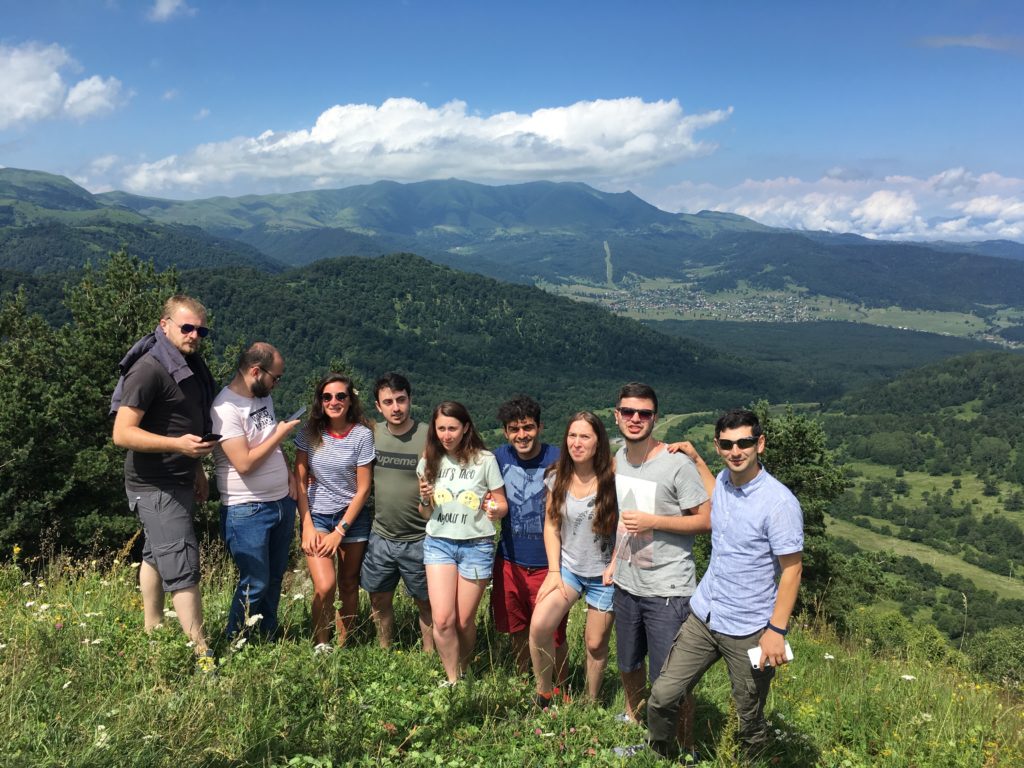
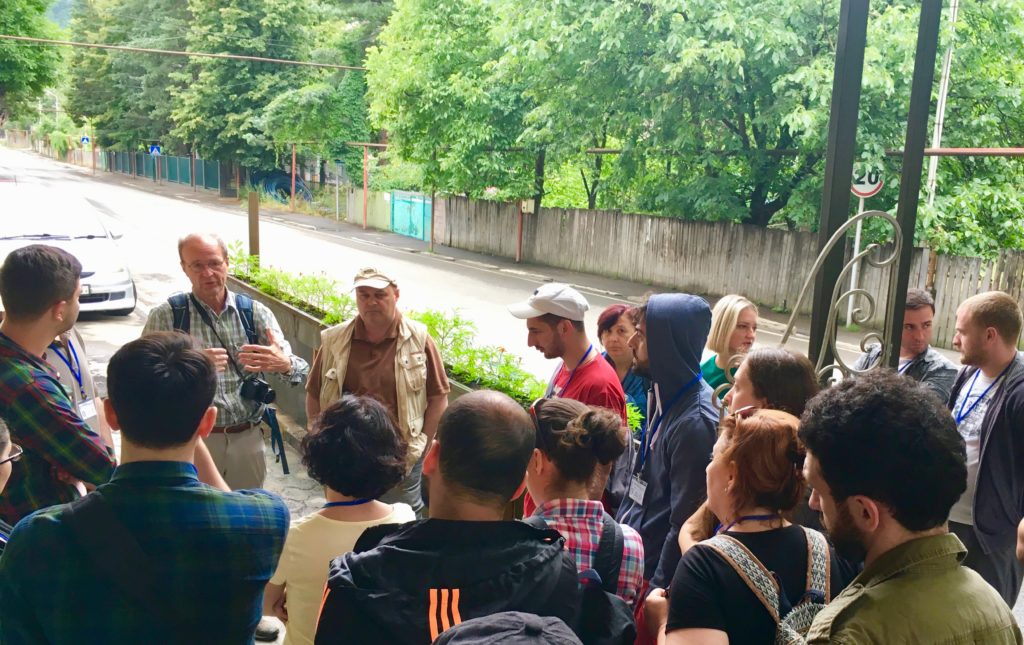
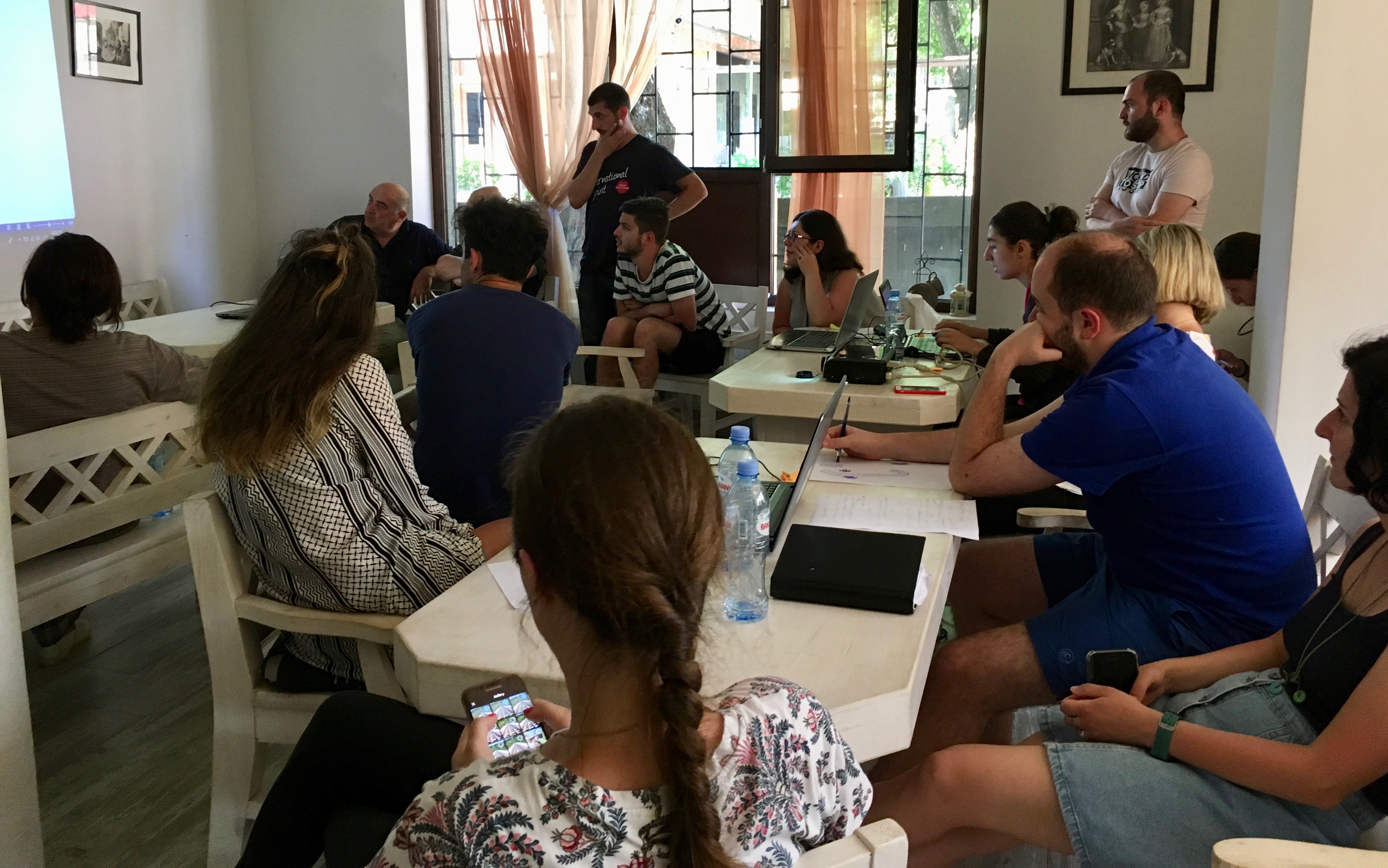
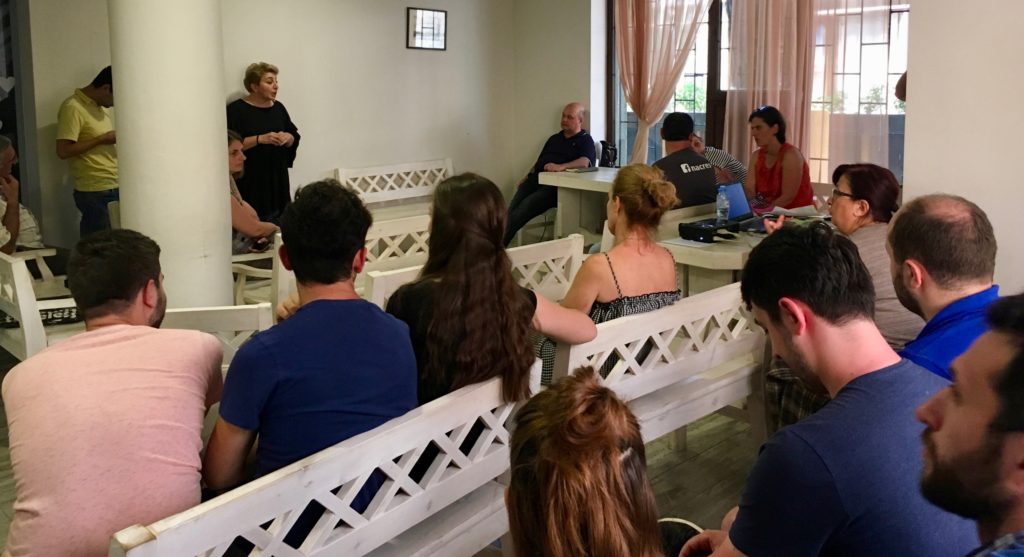
The final report of the Georgian case Study Course, made by the students, can be downloaded here: Case Study Georgia 2018
The presentation of the results, made by the students for the final stakeholder discussion, can be viewed here: Tsaghveri 2018 Presentation
***
The first visits to the selected Case Study Communities in Armenia and Georgia took place in the Spring 2017. The aim of the visits was to meet with the local stakeholders, confirm the interest of the local communities to participate in the CaucaSusT project, and initiate the needs analysis of the communities.
Field Visits in Armenia:
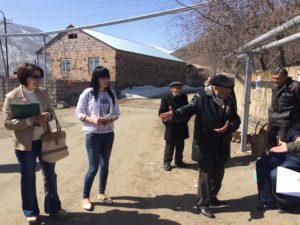
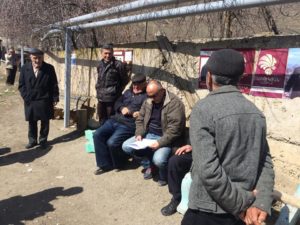
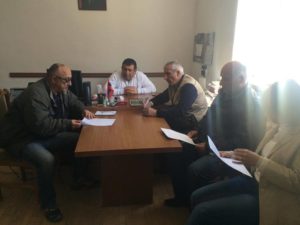
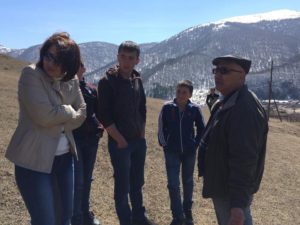
The ASPU CaucaSusT team with a number of students visited the local communities Aghavnadzor, Marmarik, Meghradzor and Artavaz on April 5, 2017 in order to discuss potential participation of the local stakeholders in the Case Study courses and to initiate dialogue on rural tourism development in Armenia. The students and partners held community meetings and interviews with community leaders, staff of local organizations and residents. In addition, they distributed questionnaires in order to reach a wider group of stakeholders with the help of the community leaders.
The discussions and questionnaires revealed that the local people are devoted to their ancestral land despite the many challenges, including the lack of water and fertile soil. Residents are aware of the potential of tourism in their communities, however, the lack of financial resources and practical knowledge on tourism development constitutes a challenge. Residents of all communities were unanimous in their support for potential projects promoting their sustainable development.
Field Visits in Georgia
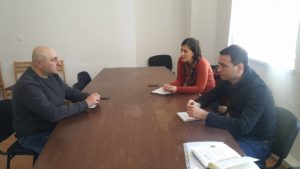
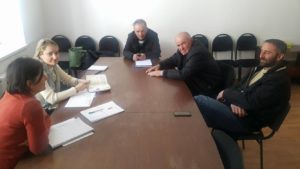
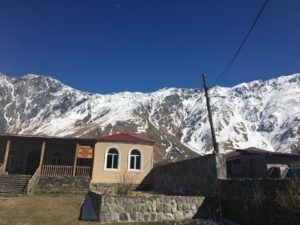
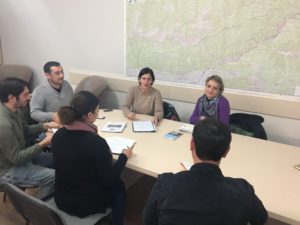
The Georgian Team visited Borjomi –Bakuriani on 28 March, and Stepamtsminda, Kazbegi on April 3, 2017 and met with a number of stakeholders in both communities, as well as representatives of international organizations PIN/LAG Kazbegi and Mercy Corps.
The local stakeholders declared their readiness to cooperate with the CaucaSusT project and provided all needed information, including statistical data, strategically important documents and research results. Both areas hold much potential for sustainable tourism development, and would highly benefit from it in terms of economic structure, creation of workplaces and attraction of investments. International organizations active in both selected areas (providing research, observations and implementing interesting projects) elaborated with the TSU team some practical points for the cooperation with the CaucaSusT project.
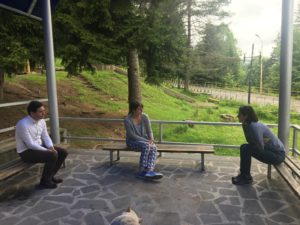
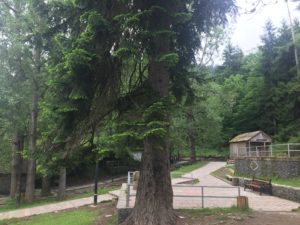
The TSU team travelled Borjomi and Tsaghveri – the first selected site for the case study course, on 7 June 2017, and met with the stakeholders, including representatives of LAG Tsaghveri, Mercy Corps and the local association of the Tsagveri community “Green Valley”. The local stakeholders declared their readiness to cooperate with the project. Some practical points for the future cooperation were elaborated within the framework of the project. Head of Green Valley, Maka Gongadze, shared her impression about the needs of the Tsagveri community in agro tourism development, as well as restoration and development of some touristic routes that were investigated in close cooperation with the local municipality.
Further field work planned:
In the summer of 2018 and 2019 the students and teachers from TSU and ASPU, together with the CaucaSusT partners, will participate in the pilot Case Study Courses in the selected communities in Armenia and Georgia.

